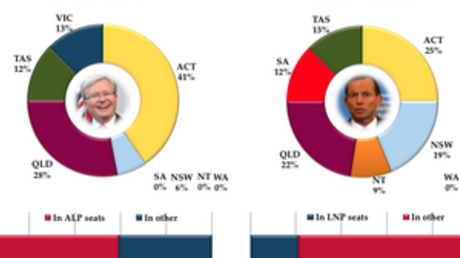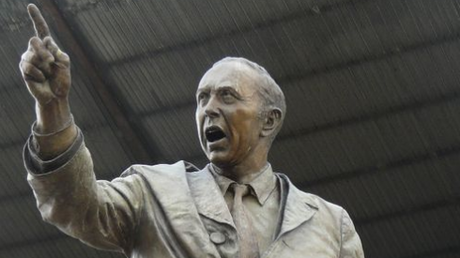
THE COMING weeks are bound to see a lot of commentary about the lack of forward-looking policy being put on the table in the lead up to the federal election.
We are already hearing the now-familiar lament from media, business and other interest groups that politicians and political parties are much too focused on image wars and meaningless slogans at the expense of substantive policy detail.
And once the election is over, a lack of leadership and strategic vision will probably be blamed for the failure of this election to advance policies that strategically address the big issues facing Australia.
The implication is the decline of substantive, long-term public policy debate in Australia is the fault of individual leaders or political parties having lost their way.
In other words, the assumption is that good policy debate and action will start to emerge again if better, more strategic leaders are promoted in our political system, or if the political parties are given a shake-up.
I argue this is both wishful and wrong thinking.
Politicians are no longer able to longer deliver sound, forward-looking policy in any consistent or coherent way
The stark reality is that our politicians are no longer able to deliver sound, forward-looking policy in any consistent or coherent way.
Nor will this situation change. In fact, the lack of policy foresight and promotion will become even more manifest in future election campaigns.
This is because the problem of policy leadership is not about individuals, but the result of deep, systemic problems with our liberal democratic system itself.
The problem of policy leadership is not about individuals, but the result of deep, systemic problems with our liberal democratic system itself
We tend to think in an age where democracy is basically unchallenged as a political system, that we have a dynamic, flexible and, at the end of the day, functional system.
The reality, however, is that all liberal democratic systems have become progressively stranded from the world around them over the past two decades.
This is because they represent a 19th century political system built around 19th century assumptions and organizing principles about how the political and policy world should work, and how citizens should engage with it.
My argument is that a combination of globalisation and the development of internet-based communications technology (ICT) from the 1990s onwards, effectively undercut the functionality of these 19th century assumptions and principles.
The 19th century world
Liberal democracy assumes the world around it will move in a comparatively slow way - allowing elected representatives sufficient time and scope to decide on policy and legislate for it in parliament in a deliberate, proactive fashion.
It also assumes elected representatives are the prime decision-makers on policy-making because they are best able and placed to understand the world around them.
Further, it assumes that most political events will be contained within the geographical boundaries of electorates, states or even countries. It assumes that national parliaments as a result will always be the predominant realm which will decide what, in terms of policy, will have a major and ongoing impact on the citizens they represent.
The 21st century world
The problem of policy leadership is not about individuals, but the result of deep, systemic problems with our liberal democratic system itself
In the context of globalisation and ICT, it has become impossible for politicians to know or anticipate what is going on in the super-fast and super complex world that now surrounds them, or create timely or coherent public policy frameworks to manage it.
In short, because the 21st century dynamics of political and economic activity are fundamentally different from those which the liberal democratic system is geared to manage, our system and the politicians acting within it become increasingly distanced from the world they are meant to steer and direct.
In order to continue to appear in control, political leaders and their parties increasingly resort to spin.
This becomes the default mode of compensating or deflecting their growing inability to develop and promote future-oriented policy.
In this way, we see the systemic reasons for why politicians increasingly resort to spin over substance and why the problem is not going to be solved easily.
Ways forward
This prognosis might seem bleak for those who believe that the current system can be fixed.
But understanding the true nature of the problem – that our policy malaise is deep-seated and not explained through blaming individuals or specific groups – should force us to think more laterally about how to fix it.
Change will come when we finally realise the current system is fundamentally broken and that new processes and institutions are needed that better align with the realities of the 21st, rather than the 19th century.
In the meantime, be prepared in both this and future election campaigns for increasingly more slogan and image wars, and even less policy substance and debate.




